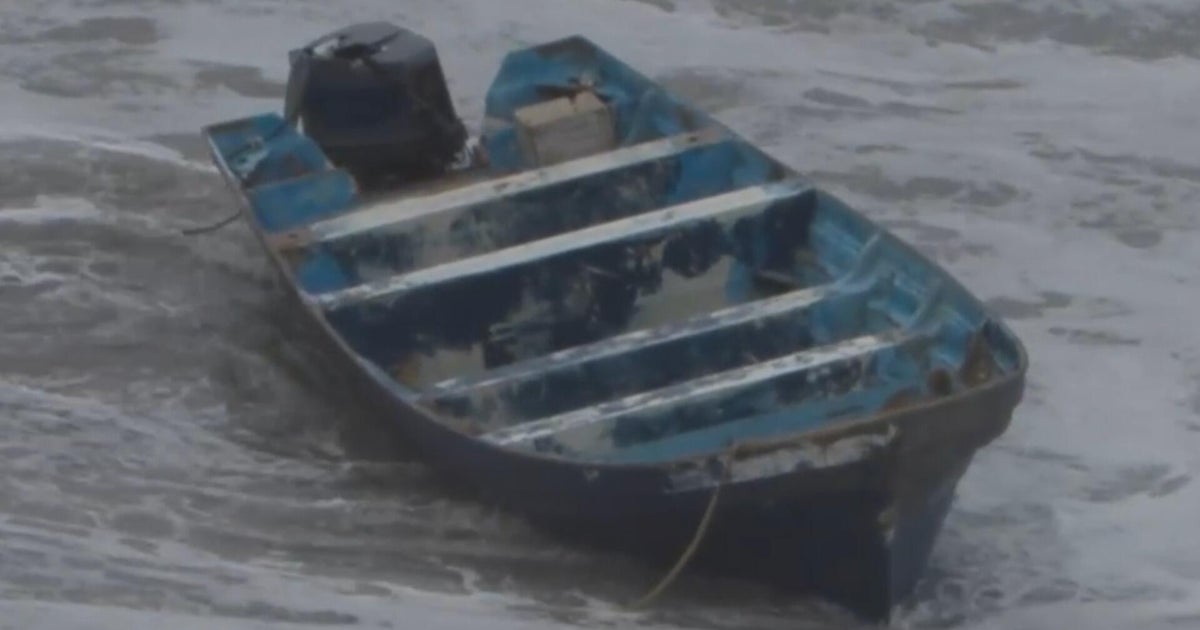Coast Guard Investigates Capsized Vessel Amid Human Smuggling Concerns
The U.S. Coast Guard has launched a high-priority investigation into a capsized vessel discovered 15 miles off the coast of Florida early Tuesday morning, with authorities suspecting ties to human smuggling. The partially submerged boat, carrying no survivors, was spotted by a commercial fishing vessel near Key West. Rescue teams recovered three bodies and evidence suggesting more passengers may be missing, intensifying concerns about maritime safety and illegal immigration routes.
Details Emerge in the Capsized Vessel Case
According to Coast Guard Sector Key West Commander Captain Ian O’Connell, the 25-foot pleasure craft showed signs of severe overcrowding. “The vessel’s design capacity was for eight people, but we’ve identified personal items suggesting at least double that number were aboard,” O’Connell stated during a press conference. Forensic teams are analyzing waterlogged documents and cell phones recovered from the scene.
Key findings from the initial investigation include:
- No life jackets found aboard the vessel
- Signs of recent engine trouble based on fuel system analysis
- Multiple nationalities represented among recovered identification items
Human Smuggling Patterns in Maritime Incidents
This incident marks the fourth suspected human smuggling case in Florida waters this year. Data from Customs and Border Protection (CBP) shows a 37% increase in maritime interdictions along the Southeast coast since 2021. Dr. Elena Marquez, a maritime security expert at the University of Miami, explains: “Smugglers are increasingly using recreational boats because they attract less attention than traditional go-fast vessels, but they’re often dangerously overloaded and unseaworthy.”
Recent statistics paint a grim picture:
- Over 300 lives lost in suspected smuggling operations in Caribbean waters since 2020
- Average smuggling fees ranging from $3,000-$15,000 per person
- 75% of interdicted vessels lack proper safety equipment
Coast Guard Response and Operational Challenges
The Coast Guard has deployed cutter ships and aircraft to search a 5,000-square-mile area for additional survivors or victims. “These operations present unique challenges,” said Petty Officer First Class Daniel Ruiz. “When vessels capsize at night without distress signals, we’re often dealing with hours-old scenes by the time we respond.”
Meanwhile, immigration advocacy groups have raised concerns about the focus on enforcement over safety. “While we support investigating criminal smuggling networks, we must remember these are desperate people risking everything,” said Lucia Fernandez of the Florida Immigrant Coalition. “The solution requires addressing root causes, not just intercepting boats.”
Technological Advances in Maritime Surveillance
The Coast Guard has implemented new detection systems to combat smuggling operations:
- Over-the-horizon radar capable of spotting small vessels 50 miles out
- AI-powered pattern recognition software to identify suspicious boat behavior
- Enhanced night vision equipment for helicopter crews
Despite these advances, officials acknowledge smugglers constantly adapt their tactics. “They monitor our patrol patterns, use disposable phones, and frequently change departure points,” explained CBP supervisory agent Mark Reynolds. “It’s an ongoing game of cat and mouse.”
Broader Implications for Maritime Safety
The incident has reignited debates about maritime safety regulations. Current laws require life jackets for all passengers on commercial vessels but don’t mandate them for private boats in all circumstances. National Transportation Safety Board (NTSB) data shows that 85% of drowning victims in small boat accidents weren’t wearing life jackets.
Boat manufacturer associations have pushed back against calls for stricter capacity enforcement. “The problem isn’t the boats—it’s the criminal organizations misusing them,” argued James Whitmore of the National Marine Manufacturers Association. “We already clearly label capacity limits on every vessel.”
International Cooperation and Next Steps
The Coast Guard is coordinating with Bahamian and Cuban authorities, as tracking data suggests the vessel may have originated outside U.S. waters. Diplomatic cables reviewed by our reporters indicate growing frustration among Caribbean nations about being used as transit points for U.S.-bound migrants.
Looking ahead, investigators will:
- Trace the vessel’s ownership and registration history
- Analyze tidal patterns to determine probable capsizing location
- Collaborate with international partners to identify smuggling networks
As the investigation continues, families anxiously await news about missing loved ones. The Coast Guard has established a tip line (1-800-XXX-XXXX) for anyone with information about the incident or suspected smuggling operations. This tragedy serves as a stark reminder of the human costs behind immigration policy debates and the ongoing challenges of securing America’s maritime borders.
See more CNN Headline


